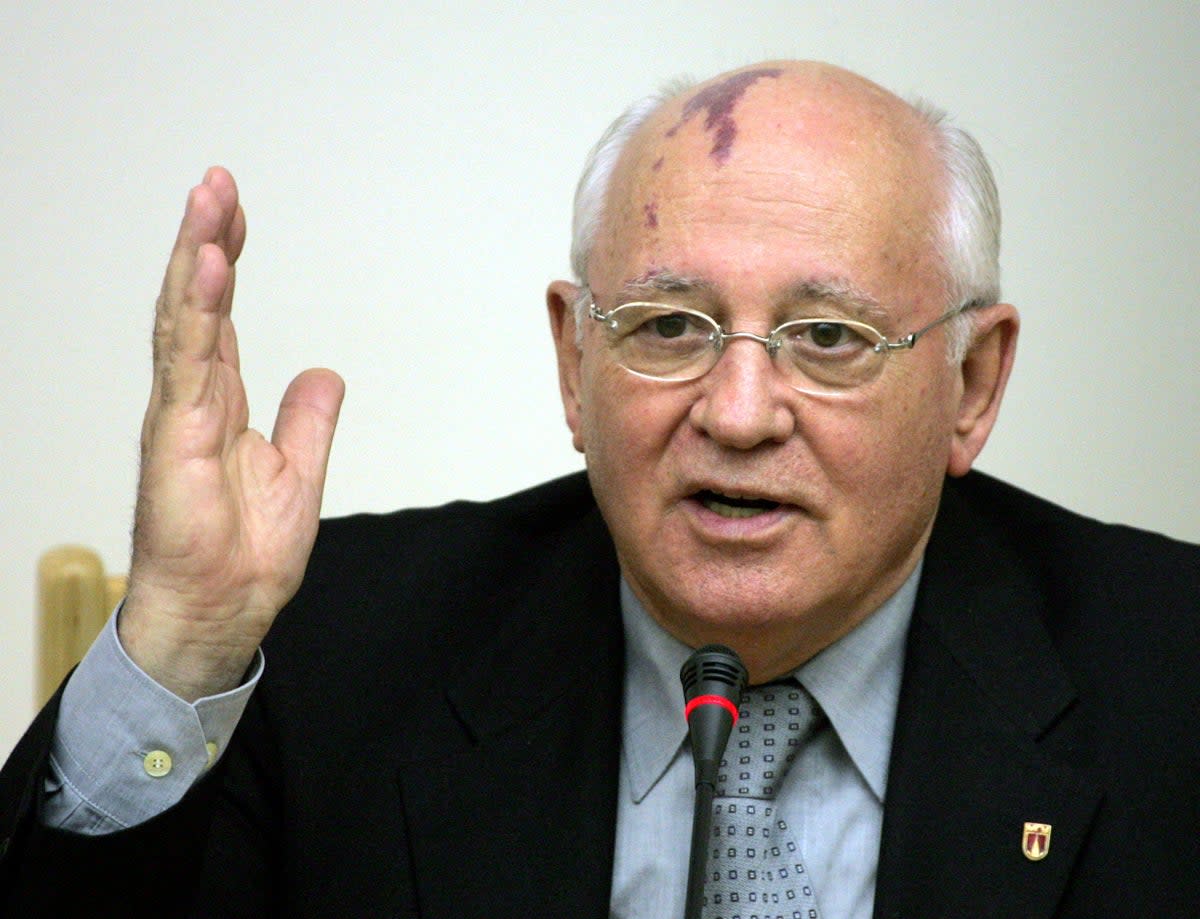Voices: The Top 10 people who broke the thing they were in charge of (for the greater good)

- Oops!Something went wrong.Please try again later.
Thanks to Phil Riley, who suggested this list when Mikhail Gorbachev (number 8) died in August. Mick O’Hare wondered if there should be two lists, of those who did the breaking on purpose and those, such as Gorbachev, who did it by mistake, because he was trying to reform the Soviet Union, not destroy it. I stuck with a jumble of motives, judging the “greater good” independently of what was intended. In chronological order, then…
1. Frodo Baggins, year 3019 of the Third Age. Excellent nomination from Peter Lee and James Mendelsohn. Pedantry note: Frodo didn’t destroy the ring; the deed was done by Gollum, who stole it and slipped (the film commits a great crime against art on this point); but Frodo did most of the work.
2. Moses, circa 13th century BC. Threw down the first edition of the two tablets inscribed with the Ten Commandments after seeing the Children of Israel dancing round the golden calf. Nominated by Mark Solomons. “There’s a Jewish tradition that God explicitly praises Moses for smashing them,” said Martin Sykes-Haas.
3. George Monck, 1660. Commander of parliamentarian forces in Scotland, by that point the pre-eminent military leader in the British Isles. Nominated by Christian Schmidt. David Herdson had nominated Richard Cromwell, but Allan Holloway ruled in favour of Monck: “Cromwell resigned in 1659 – the Restoration would not have occurred, at least in the peaceful way it did, if Monck had not marched south in January 1660.”
4. Abraham Lincoln, 1861. No, he didn’t go to war to abolish slavery, but that is how it ended. Nominated by SisuMix, Stephen Yorke and Anonyman.
5. Michael Collins and Arthur Griffith, who broke the unity of the Island of Ireland in 1921. “It was pragmatic but they saw it as for the greater good of the nationalist cause,” said Daniel Howard. Will Cooling also nominated James Craig, first prime minister of Northern Ireland, who agreed to the break-up of Ulster within the break-up of Ireland, “so that a more secure redoubt could be secured for Presbyterian loyalists”.
6. Charles de Gaulle, 1962. Betrayed the Algerian settlers whose protests had created the crisis that brought him back to power, recognising that decolonialisation had to happen. Thanks to John Peters, Carl Gardner and Will Cooling.
7. Menachem Begin, 1978. Prime minister of Israel, former terrorist and fierce nationalist, signed the Camp David Accords with Anwar el-Sadat of Egypt and returned the entire Sinai peninsula, seized by Israel in the 1967 war. Nominated by Steven Fogel.
8. Mikhail Gorbachev, 1991. Brought in openness and reform after becoming general secretary of the Politburo in 1985 and, crucially, declined to intervene to keep eastern bloc countries under Soviet control after the fall of the Berlin Wall.
9. FW de Klerk, 1994. The last president of apartheid South Africa, who decided to end the system, freed Nelson Mandela and held an election on universal suffrage. Phil Riley’s opening nomination.
10. Liz Truss. Thanks to Nubis, Edacuk and Richard Morris. Robert Peel was also nominated for breaking the Conservative Party, by Sam Freedman, EFTA4UK and Chris McKeon, even if the party eventually mended itself after Peel split it by repealing the Corn Laws in 1846.
There is always one. This week it is Tom Hamilton, who nominated “any chef who has ever used an egg”.
Honourable mention for Alwyn Turner, who nominated Enid Wistrich, chair of the Greater London Council’s Film Viewing Board in the early 1970s, and therefore the chief film censor for London, who tried to abolish film censorship in London. (But the full council voted against, so she doesn’t count.)
Nominations not accepted for Ramsay MacDonald, whose reduction of the Labour Party to a rump of 52 seats was not for the greater good; Clement Attlee, who presided over Indian independence, which was happening anyway and could possibly have shed less blood; or Tony Blair, whose rewriting of Clause IV did not amount to “breaking” Labour’s constitution.
To keep up to speed with all the latest opinions and comment sign up to our free weekly Voices Dispatches newsletter by clicking here
Rob Farmer nominated Robbie Williams and Ginger Spice in their respective bands, but I am not qualified to rule on the “greater good” in these cases.
Next week: Evil computers.
Coming soon: Politicians’ doctorates, such as, “The fear of atheism in England, from the Restoration to Berkeley’s Alciphron”, by John Redwood.
Your suggestions please, and ideas for future Top 10s, to me on Twitter, or by email to top10@independent.co.uk
